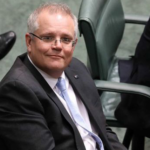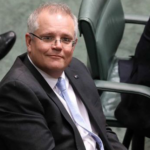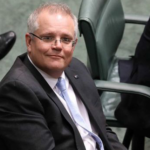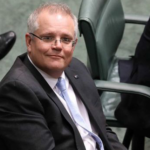Aussies Launch Petition to Oust Morrison
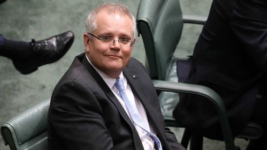
More than 47,000 Australians have signed a petition in recent weeks, calling on the Governor General to dissolve parliament.
The change.org petition asserts that the federal government has exhibited a ‘disregard’ for the rules governing the conduct of its own ministers, as well as ignored their corrupt behaviour.
It also raises questions about the government’s failure to deal with a range of important issues, including climate change, and says that the reign of the Liberal National Party (LNP) has contributed to a range of issues affecting the nation, including:
- Robodebt and resulting damage, including depression and suicides
- Aged people on unrealistic waiting lists for Home Care services
- Failing to properly deal with devastating bushfires across the nation
- Continuing deaths in custody, and
- Continuing mistreatment of asylum seekers, including sexual assaults and suicides
It also lists as grievances a number of ‘questionable decisions’, including the repeal of medevac laws.
The petition is a signal of the groundswell of dissatisfaction that’s been growing around Australia for some time, exacerbated in recent weeks by a number of headline issues, including the medevac repeal, the axing of federal arts funding and Australia’s pitiful score in the 2020 Climate Change Performance Index and Economic indexes, announced at the same time as the country dries up, the flames get bigger, and the air more difficult to breathe.
To many it’s unacceptable that, while the Prime Minister has gone on record saying he accepts the science of climate change, he’s engaged in public stunts like holding lumps of coal in parliament, mocking the innovative Tesla big battery, and making the alarming decision to do nothing about emissions reduction.
In March, the government released its foreign ownership of water entitlement register, showing that one in 10 water entitlements are foreign-owned investors.
And then this week, embarrassing footage surfaced of the PM, who is reported to be on holiday overseas, lash out in 2009 at the then Victorian Police Commissioner Christine Nixon for going out to dinner during the Black Saturday fire of 2009. At the time Mr Morrison was just an MP, but as a guest on ABC’s Q&A said it was ‘incumbent’ on all public officials to show good judgement during times of national crisis.
Out of touch
Time and again, news and events become a stark reminder that Scott Morrison and a great number of his peers are completely out of touch with what is important to many Australians. Right now, the popular consensus is that he should be here, as Australia faces a national bushfire crisis that currently shows no signs of abating.
Certainly, secrecy too, has been a hallmark of this government. As one newspaper columnist recently remarked, Morrison’s ‘Orwellian trope was born on the night of the federal election victory where he invoked the image of the “quiet Australian”.’
Increasingly, the Government has shown that unless you want to shout it’s praises, it really just wants you to shut up.
This was demonstrated earlier this year when the Federal Police raids on Australian journalists highlighted just how serious and wide-reaching a number of laws that the Government has introduced actually are. While they were introduced under the guise of protecting national security, they have impacted our freedom of speech, our freedom of association, our privacy, and in many cases the presumption of innocence before pleading guilty in criminal cases, by placing the onus on the defendant to prove no wrong doing, rather than the prosecution to prove otherwise.
Stifling the voices of ordinary Australians
It’s also been evidenced by the moves the government has made to stifle the voices of the trade unions and it’s crackdown on climate change protesters, which Mr Morrison labelled ‘a new breed of radical activism;’ as well his stated intention to stop ‘secondary boycotting’ which occurs when activists put pressure on a company to stop business practices.
Disappointingly, the Australian Law Reform Commission (ALRC), which undertakes research and provides recommendations to reform the law on topics selected by the Attorney-General of Australia, has shown that it is not always effective in having laws reviewed and changed.
ALRC looked into a number of laws in 2015, assessing in particular their impact on basic human rights and civil liberties, and yet despite its findings that a number of laws unjustifiably breach some of these, it did not make recommendations to change the laws, instead opting for further review.
And, as has been pointed out many times over, without a bill or charter of rights, Australians remain largely unprotected against rights abuses by government.
So, can the government be sacked?
If you know your Australian history you’ll know that in 1975 Australia faced the largest constitutional and political crisis in its history. On November 11, 1975 then Prime Minister Gough Whitlam – head of the Labour Party, was sacked by the Governor-General Sir John Kerr, who then commissioned the Leader of the Opposition, Malcolm Fraser of the Liberal Party, as caretaker Prime Minister.
The events surrounding the sacking of Gough Whitlam have been debated over and over, with conflicting reports and polarising commentary. Not long after the event, Sir John Kerr resigned and left Australia, spending most of his life overseas. But to this day, the Governor-General retains the power to dismiss government ministers, including the Prime Minister despite the fact that these powers have not since been used to force a government from office since.
Whether the change.org petition will actually have an impact, only time will tell.
We must not forget that it should be perfectly normal for Australians to engage in healthy political reflection – it is after all, a hall mark of democracy, our greatest freedom. For years it has been the domain over over-the-fence neighbourhood banter, and the topic of choice for taxi drivers and their passengers. These days healthy and robust debate has found a voice on social media.
But much of the discussion on local groups, personal pages and other public forums suggests a growing ‘disquiet’ amongst a significant number of Australians who are completely dissatisfied about the performance of the Morrison government.
His legacy will speak for itself, but in the meantime, there’s emerging concern from many sections of the community about the immediate and potentially long-term damage being caused by a number of government policies, government inaction on serious issues as well as government decisions, in particular those that have been enshrined into law.




